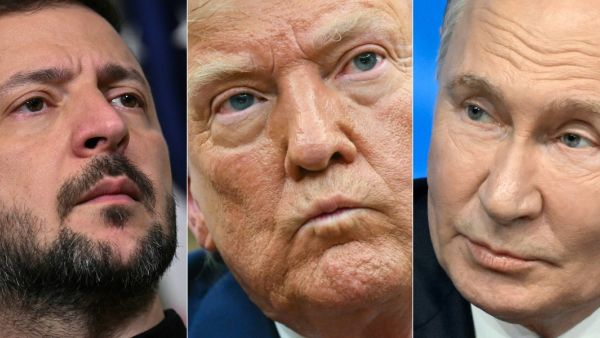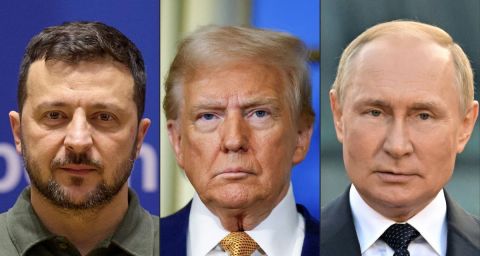ALBAWABA - Concerns are growing in Ukraine and across Europe that the talks could lead to a "backroom deal" that changes the spheres of influence at the expense of Kyiv's sovereignty and territorial integrity. The summit between U.S. President Donald Trump and Russian President Vladimir Putin is expected to take place in Alaska.
Recent comments by Trump about the chance of a land-swap deal have scared Western governments, as has the rumor that Putin wants to take over eastern Ukraine in return for ending the war. They think this is a step toward giving up land, which could change the balance of power in Europe.
The White House is still willing to hold a meeting with Russian President Vladimir Putin, US President Barack Obama, and Ukrainian President Volodymyr Zelensky. However, it seems likely that Moscow and Washington will set the general rules for a settlement, leaving Ukraine with little room to move.
The EU has taken a strong stance. Kaja Kallas, the head of EU foreign policy, said that any deal between Washington and Moscow must include Ukraine and the EU, as well as follow international law and protect Ukraine's borders.
Allies in the West, from London to Paris to Brussels, say that any talks should begin on the current frontlines and that there must be a halt before talks about a bigger solution.
Experts say that the summit could change how Washington deals with Ukraine. Instead of giving unrestricted military and political support, Washington might try to reach a deal with Moscow that gives Moscow strategic gains in exchange for economic benefits for the U.S., like access to Ukraine's rare earth minerals and letting American and Russian companies back into global markets.
Analysts think this strategy could lead to a big shift in the balance of power between the world's major powers. But the price will be high in terms of geography and politics. Kyiv will pay the highest price, and Europeans will once again feel like they were just watching the war go on when they had a real chance to end it early.
A "Great Deal"
Dmitry Brija, Director of the Russian Studies Unit at the Arab-Eurasian Studies Center, said that the Alaska meeting could be a "cornerstone" for fixing the Ukraine crisis, but it would not be enough to solve the problem for good because it is so complicated.
Brija told Erem News that Europe needs to take a united stand in the deal and that disagreements between countries like France and the UK hurt the European effort.
He stressed how important it was to negotiate without conditions and find common ground in order to deal with the problems that caused the crisis, especially in eastern Ukraine, where Russian culture is important.
Brija said that Trump sees the answer as a "grand bargain" that would let U.S. companies mine rare earth materials in Ukraine and re-enter the Russian market once the sanctions are dropped, while Russian companies would get back into global markets. The plan also includes a lot of help for rebuilding the war-torn eastern areas that Russia used to rule.










